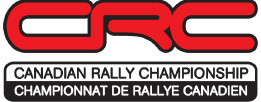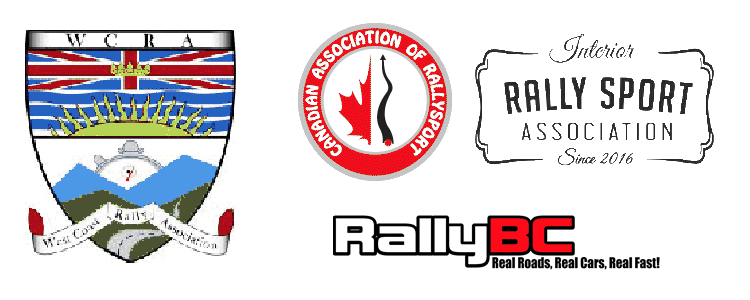VOLUNTEER

Sign up here and join the team that makes events happen.
There are a wide range of roles we need filled that are crucial to making Big White happen. Most of the roles are entry level with training on the day of the event and serve as steppingstones to getting more involved. Volunteering is also a great way to learn more about how the sport works and developing a great foundation for competing or organizing.
Control Marshals
Teams of at least five people manage the cars arriving and starting each competitive stage and ensuring the safety of the competitors and others. All levels of experience are needed in this position. Volunteers will often rotate through the positions during the day.
Control Captain: The leader of the group who will bring their experience, knowledge, and leadership to the team and make sure everything runs smoothy.
Stage Security: A crucial role of keeping an eye opening for cars or pedestrians who are approaching the competition area. An opportunity to interact with other rally fans and the general public and provide education about being safe at events. You’ll have lots of support from the rest of your team if needed.
Timing: Timing is what the sport is all about! From marking when the cars arrive to giving them start times, to giving them their finish times, the timing crew uses a mix of paper and computer tablets to record when things are happening… and you’ll have direct communication with the competitors!
Start Line: This is where the final safety checks happen… do the teams know when they are starting? is their safety gear in place? Is the stage ready for them to go? The final step before the teams start racing… loud, exciting, and important.
Flying Finish: Even with GPS based timing, capturing an accurate finish time for each car is a vital back-up for the very reason we are holding the event… finding out who is the fastest through the stage. This is RIGHT next to the action and you’ll get all the noise, smells, and thrill of the cars passing the finish line.
Service Marshals
Teams of at least four people manage the cars arriving and leaving the service park. This team works closely with the scoring team and has extended down-time in the comfort of the service park. Often the Service Marshal team will also manage the first start control and final controls at the event which may be at different locations.
Radio Operators
Licensed amateur radio operators are a key part of any rally event’s volunteer 2m safety network. From blocking side roads, to tracking cars, to supporting the Control marshals, our radio operators and the radio net use are often the only reliable communication we have with the volunteers and competitors.
Blocker: Primarily these positions will be at locations people might try and get onto the competitive course. Blockers will place their cars so anyone approaching will see the road is blocked and not be able to drive onto the course. We also ask blockers to keep track of the cars as they pass. In rare situations, teams may stop at a blocker and pass along emergency information to Net Control.
This is an entry level role for volunteers, but it is valuable if you have a vehicle capable of driving down forestry roads and are comfortable spending time in nature waiting for the excitement. A simple 2 m mobile is all that is really needed for the job, handhelds can work in some positions.
Control Radio: This role handles the radio traffic at either the start or the finish and successful volunteers in this role will have some previous rally experience. You will be announcing cars as they start, or finish, and passing vital communication between net control and the Control Captain.
This can be done with a simple 2m mobile, but you will find the ability to crossband reliably and cleanly to be valuable in this role. (dual band with crossband repeat, dual band hand held, lapel mic and earpiece)
Net Control: All of the event radio traffic is coordinated through a dedicated net by two, or more, Net Control operators. This role requires strong radio operating and troubleshooting knowledge and a personality that can keep calm when facing chaos. These operators are in the heart of event control and work directly with the event leaders to communicate with the operators in the field. The ability to provide and solicit clear, concise, and accurate communications is key.
The ability and experience of using a temporary set-up a system with feedline and remote antennae using radios and equipment you are familiar with is valuable. However with notice the event can usually source the radio equipment needed.
Service Radio: Often a luxury for events, a radio operator in the service park will become a liaison for the event to find service crew that may need to go recover teams that have broken down. This role is generally near the civilization of the service park, requires interaction with team crew members.
This can be done with a simple 2m mobile, but you will find the ability to crossband reliably and cleanly to be desirable in this role.
Technical Inspection
Volunteers will work under the direction of the Chief Scrutineer as the inspect the rally cars for safety compliance. This happens before the competition starts, typically on Friday at Big White, and gives volunteers the opportunity to get a close look at all aspects of the cars that are competing. Tech knowledge is not required, but can be helpful. This role is invaluable experience for someone who is looking to buy or build a rally car or who is getting ready for their first event.
Stage Set-up
This pre-event role is a key part of making sure the roads are prepared for competition. Following paper maps, kml files, and using common sense is a part of setting up the stages, as is a willingness to spend the day out in some of the best scenery in the country. Several pairs of volunteers will head out and put up banner tape on crossroads, set-up spectator areas, and ensure sign markers are properly placed. This role does involve driving on forestry roads and carrying some provided supplies. Having an amateur radio is a benefit but not required.





